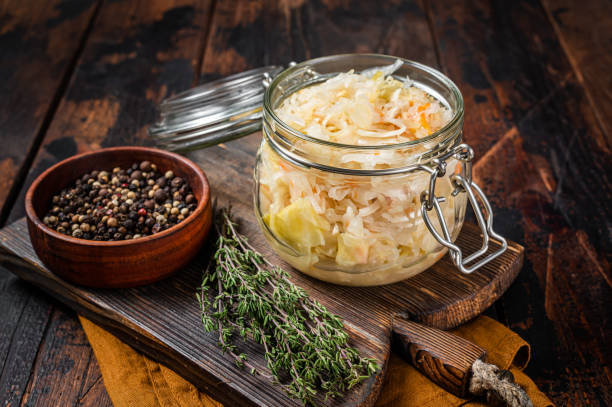Sauerkraut is not only delicious but also healthy. When the sauerkraut is fermented, fresh vegetables are additionally enriched with vitamins and new valuable substances, which remain in the finished product for another 10 months.
Improves digestion
The fermentation process involves lactic acid bacteria. When they enter the intestines with cabbage, they normalize their functioning, improving the microflora. Therefore, regular consumption of sauerkraut helps to eliminate dysbiosis. This is especially true for people suffering from constipation.
Sauerkraut also contains lactic acid, which effectively fights dangerous bacteria, including E. coli. Nutritionists also recommend including this miracle food in your diet if you need to lower blood cholesterol.
A catalyst for weight loss
Cabbage itself is a dietary product, and in its sour form, there are very few calories, so this product can and should even be consumed during a period of weight loss. Sauerkraut brine will also help you get rid of a few extra pounds. Nutritionists say that it has miraculous cleansing properties. Therefore, the result can be assessed quite quickly.
Against toxicosis
Sauerkraut brine is effective against toxicosis, helping expectant mothers get rid of the uncomfortable feeling of nausea.
Fiber
Sauerkraut also contains a sufficient amount of fiber, which prevents intestinal constipation, helps to eliminate toxins from the body, and helps the absorption of trace elements. Another active ingredient, phytoncide, prevents the growth of pus-forming Staphylococcus aureus and a number of other microorganisms.
Who shouldn’t eat sauerkraut?
Despite all the above-mentioned beneficial properties of sauerkraut, in some cases, it can be harmful because it contains a high content of organic acids. That’s why it’s not recommended to eat sauerkraut:
- people with thyroid and pancreatic problems;
- people with hypertension and kidney failure;
- with gallstones;
- with stomach and duodenal ulcers.



